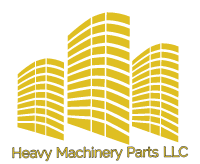In industries reliant on heavy machinery, such as construction, mining, and manufacturing, equipment downtime can disrupt entire workflows, increase costs, and lead to significant project delays. To minimize these risks, companies implement preventive maintenance—a proactive approach focused on regular inspections, servicing, and repairs to avoid unexpected breakdowns. Preventive maintenance not only prolongs the lifespan of machinery but also ensures optimal performance, reduces costly downtime, and keeps safety standards high. By understanding the benefits and practices of preventive maintenance, businesses can build a solid foundation for long-term operational success.
What is Preventive Maintenance in the Context of Heavy Machinery?
Preventive maintenance involves scheduled tasks designed to identify and address potential issues in machinery before they escalate. Unlike reactive maintenance, which focuses on fixing equipment after it fails, preventive maintenance takes a proactive approach, spotting wear, leaks, and other issues during routine checks to prevent costly repairs later.
This approach is crucial in industries where unexpected equipment failure could halt entire operations. For example, in my experience, routine maintenance on heavy machinery like excavators or drilling rigs has proven to be invaluable. By addressing potential issues early, companies avoid expensive repairs and ensure the machinery is always ready to perform, even under demanding conditions.

Remember that you can have access to free sample preventive forms by subscribing to our newsletter.
Key Benefits of Preventive Maintenance for Heavy Machinery
- Extended Equipment Lifespan
Preventive maintenance helps extend the life of heavy machinery by ensuring components are inspected, serviced, and replaced as needed. Without regular care, machinery parts can wear down faster, leading to frequent breakdowns and a shorter operational life. By investing in preventive maintenance, companies can maximize the returns on their equipment investments, as the machines last longer and require less frequent replacement. - Reduced Downtime
Regular maintenance minimizes the chances of unexpected breakdowns, helping avoid unplanned downtime that can disrupt operations and impact deadlines. In sectors like construction, any delay can be costly, so a proactive approach ensures that equipment is ready to function when needed, keeping projects on track. - Improved Safety
Proper maintenance also ensures machinery operates safely. Unmaintained equipment poses risks to operators and surrounding personnel. By regularly inspecting and servicing equipment, businesses can prevent accidents caused by malfunctions, safeguarding their workforce and meeting safety regulations. - Increased Efficiency and Productivity
Well-maintained equipment performs more efficiently, consuming less energy and running at optimal levels. This efficiency directly impacts productivity, as machinery can handle workloads smoothly and requires fewer operational adjustments or pauses for repairs.
I’ve seen firsthand how these benefits translate into smoother, safer, and more cost-effective operations. Proactively managing machinery helps companies avoid disruptions, cut costs, and maintain a high standard of workplace safety.
Don’t forget, we also offer a wide range of spare parts for heavy machinery, so feel free to inquire about any replacement needs you may have. Just click on contact us.
Common Preventive Maintenance Tasks for Heavy Machinery
- Inspection and Diagnostics
Routine inspections are foundational to preventive maintenance. These checks allow operators and technicians to spot early signs of wear, leaks, or any irregularities in performance. Diagnostic tools are often used to assess parts that are not easily visible, like internal components, to detect issues that may require immediate attention. - Lubrication and Cleaning
Heavy machinery often operates in environments where dust, debris, and moisture can compromise performance. Regular cleaning prevents buildup that could interfere with machinery components, while lubrication reduces friction and wear, extending the life of moving parts. - Component Replacement and Repairs
Preventive maintenance schedules usually include replacing parts known to wear out over time, such as belts, hoses, and seals. Addressing worn components before they fail helps maintain the overall integrity and functionality of the equipment. - Testing and Calibration
Calibrating machinery ensures it operates according to manufacturer specifications, which is critical in industries where precision matters. Regular testing helps verify that all systems function correctly and meet operational demands.
These tasks routinely is essential for keeping heavy equipment running reliably. Scheduled maintenance activities create a rhythm that keeps equipment in peak condition, ready to handle whatever tasks arise.
Best Practices for Effective Preventive Maintenance in Heavy Machinery
- Establish a Maintenance Schedule
Develop a schedule tailored to each machine’s needs and the intensity of its usage. Some equipment may require weekly checkups, while others might only need monthly or quarterly attention. Customizing schedules ensures every piece of machinery gets the attention it needs without unnecessary downtime. - Record-Keeping and Monitoring
Detailed records of maintenance activities enable companies to track equipment history and performance over time. These records help identify patterns and inform future maintenance decisions, creating a more efficient and data-driven approach. - Use of Technology in Maintenance
Advances in maintenance management software and predictive analytics are revolutionizing preventive maintenance. By using tools that monitor machinery conditions in real time, companies can anticipate maintenance needs more accurately and avoid potential failures.
Adopting these best practices is essential for a sustainable maintenance program. Documenting each service and using technology where possible enhances reliability and makes it easier to maintain a comprehensive view of equipment health.
A Strategic Investment in Equipment Longevity and Business Success
Preventive maintenance is much more than a checklist; it’s a strategic approach that ensures machinery operates efficiently, safely, and cost-effectively. While preventive maintenance requires planning and resources, its long-term benefits—reduced downtime, improved safety, and extended equipment lifespan—make it a vital practice for any industry that depends on heavy machinery.
Preventive maintenance transforms equipment management from a reactive scramble to a proactive strategy, ensuring that machinery is always ready for operation and helping businesses avoid costly setbacks. For companies committed to operational excellence, preventive maintenance is an investment that pays off in enhanced productivity and reduced costs, reinforcing the foundation for long-term success.
